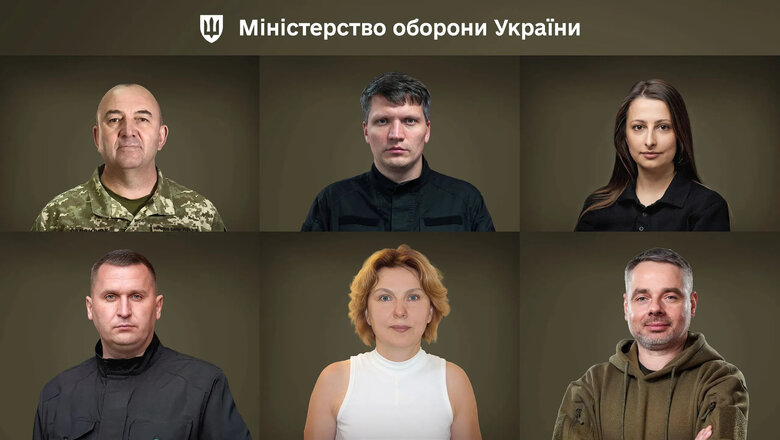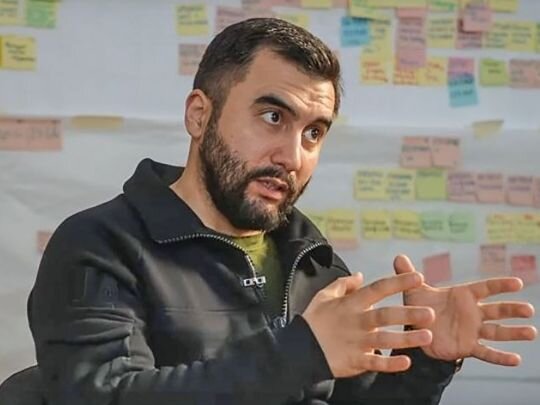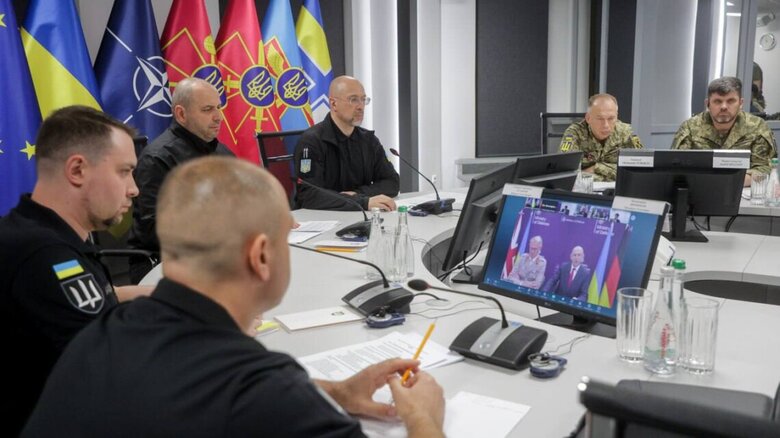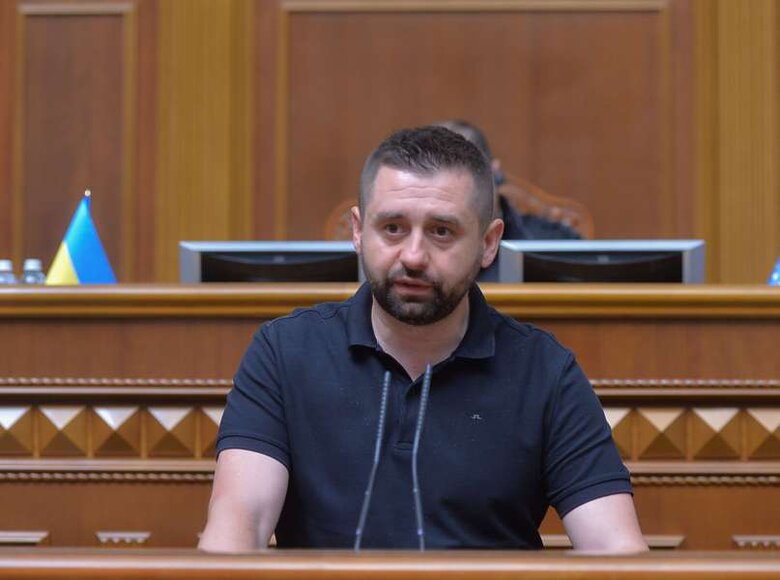Find $6 billion and not kick bucket in fighting over pots: what Umerov left to Shmyhal
The attack on the independence of the National Anti-Corruption Bureau of Ukraine (NABU) and the Specialised Anti-Corruption Prosecutor’s Office (SAPO) diverted attention from another significant event that has remained entirely in the shadows - the replacement of the defence minister. It has been more than three weeks since Denys Shmyhal assumed this post. In that time, he has appointed his deputies and outlined his priorities, making it the right moment to examine the legacy Rustem Umierov left him and the challenges now facing the ministry.
Moreover, the recent scandal over the introduction of Multicam shows that ministers may come and go, but corruption schemes are eternal.
Slow reshuffling of personnel
When Rustem Umerov took office, unlike Oleksandr Kubrakov, who demanded to bring in his own team, he asked for nothing. However, within a month, all of Oleksii Reznikov’s deputies had submitted their resignations, and none of them kept their posts.
Instead, Umerov began installing his own people, starting with appointing Arsen Zhumadilov to head the State Operator for Non-Lethal Acquisition (DOT) and Dmytro Klimenkov as the deputy who oversaw all procurement, naming Mykyta Nikitenko state secretary, and, finally, planting non-staff advisers across MoD structures.
It would be wrong to claim that all the deputies were subordinate to Umerov. No, but several independents, such as Nataliia Kalmykova and Yurii Dzhyhyr, did not stay long at the ministry.
By the way, there is a curious episode linked to Kalmykova, they say. About a year ago, one of the ministers remarked to the author, with some bitterness, that "the Ministry of Defense’s professional preparation for Cabinet of Ministers meetings mostly makes you want to cry, and so Denys Shmyhal asked that only Nataliia Kalmykova attend the meetings on the ministry’s behalf."
Against that backdrop, it was very interesting to see what Shmyhal would do with Umerov’s deputies once he himself stepped into the ministry.
The key change is that Ivan Havryliuk has returned to the ministry as first deputy minister. He is the only person at the MoD who can explain everything about ammunition without notes. People from Umerov’s team named Havryliuk as one of the key players in shifting UAH 70 billion to the State Border Guard Service of Ukraine (SBGS) and arranging ammunition procurement through the Polish company Lechmar.
In March, Havryliuk joined the supervisory board of the Defense Procurement Agency (DPA) and, by most accounts, failed to hit it off with Arsen Zhumadilov’s team. In fact, after one clash, when Havryliuk asked what the "kids with vapes" (staffers with electronic cigarettes) were doing all day, he left the post of deputy minister. He remained a military officer attached to the ministry and, throughout these months, did not draw a salary as a DPA supervisory-board member. It will now be interesting to watch whether the supply chains for ammunition change.
For the moment, the most intriguing question was whether Havryliuk’s return would mean he again oversees procurement and both agencies. No. Mykola Shevtsov, who came to the ministry from the Logistics Forces Command (the key structure for forming requirements for non-lethal items), kept his post.
With Havryliuk’s arrival, Serhii Boiev was moved back to the role of plain deputy minister, where he will continue to handle international affairs.
From the now-dissolved Ministry of Strategic Industries, the most effective official of that ministry, Hanna Hvozdiar, was transferred to the MoD.
Another no less interesting appointment is that Volodymyr Zaverukha, who worked in the Department of Military-Technical Policy and carried out ammunition procurement until the end of 2023, has been made a deputy minister.
Strangely enough, Kateryna Chornohorenko is leaving the ministry. Strange, because there were no questions about her line of work. But, insiders at the ministry claim, the issue lies elsewhere. Chornohorenko came to the MoD under Mykhailo Fedorov’s quota but gradually drifted away from the head of the Ministry of Digital Transformation.
Under Fedorov’s quota, two new appointees are entering the Ministry of Defense: Oksana Ferchuk, who in 2022 served as an adviser to Ukraine’s minister of defense focusing on the digitalization of logistics processes, and Yurii Myronenko, who headed the State Service for Special Communications and Information Protection in 2023–2024.
"Shmyhal’s approach makes it clear that he will not be throwing out all the deputies at once, as his predecessors did, but will be watching their work and replacing them gradually," a source told the outlet.
What Minister Umerov had under his direct control were the state procurement agencies, the Defense Procurement Agency (DPA) and the State Operator for Non-Lethal Acquisition (DOT), which are currently run in practice by Arsen Zhumadilov. Essentially, Umerov had the head of agencies through which contracts worth about UAH 500 billion are signed.
It is therefore crucial to understand what will happen next with Zhumadilov and the agencies.
DPA+ DOT =?
One of the first issues Denys Shmyhal will have to resolve is whether to proceed with merging the agencies or to continue the strategy of the previous minister.
As is known, after adopting the global practice of working through agencies, the MoD decided to create not one but two agencies—one for lethal procurement and one for non-lethal procurement. The Defense Procurement Agency (DPA) was launched in 2022, and the State Operator for Non-Lethal Acquisition in 2024.
The DPA operates 90% through direct contracts, while the DOT conducts 95% of its procurement through competitive bidding on the Prozorro system.
Since autumn 2024, Minister Umerov decided, citing NATO’s strategic recommendations, to merge the two agencies into one. Given that just a month earlier the minister had been open to creating a third agency for UAVs, the reason was clearly not economic logic but rather the desire to have a loyal head. At that time, the minister was already in serious conflict with Maryna Bezrukova, who headed the DPA.
In early May, Minister Umerov announced that the agencies would be merged after martial law ended and set up a liquidation commission headed by Arsen Zhumadilov.
What happened in practice? In essence, both agencies are now run by Arsen Zhumadilov, and suppliers often meet with him rather than with acting head Andrii Sozanskyi.
Since May, the two agencies have moved into a single office and have merged their PR and IT departments.
But that is not all. Part of the DOT staff followed Zhumadilov to the DPA. The first to move were communications adviser Tetiana Kharchenko and head of compliance Dmytro Bihunets. In July, Viktoriia Vynohradova will transfer to the DPA, her record at the DOT is remembered for the purchase of undelivered Farminko jackets; Israeli body armor from shell companies that may in fact prove to be Chinese; and a major scandal with textile manufacturers over estimated pricing, which prevented the DOT from holding tenders for two months.
Also transferring to the DPA to handle UAV procurement is Halyna Litosh, one of the DOT’s best procurement officers, who had been responsible there for food supplies.
In her place at the DOT will be Maryna Yeremieieva, who previously handled fuel and, to date, has had no understanding of the specifics of the food market.
Meanwhile, during this time, Arsen Zhumadilov has dismissed many DPA employees who had specialized in arms procurement for years. As one private company representative recently put it: "Many thanks to Arsen for scattering the staff like this, we’ve acquired people we never dreamed we could get."
One way or another, sitting on two chairs has never done anyone any good, and members of the supervisory boards of both agencies are already raising the question that the "after martial law ends" date is far too vague. It is necessary either to set a clear date for when the two agencies will be merged or to halt the process now.
50% funding for Ukraine’s defense industry and the club of the chosen
On Thursday, among the Ministry of Defense’s priorities, Denys Shmyhal named increasing procurement of Ukrainian-made weapons to 50%.
In fact, this trend has already been visible over the past two years. Back in 2024, two Ukrainian factories received the lion’s share of the DPA’s budget funds for ammunition procurement.
The problem is how that story ended. And it ended with defective 120 mm mines. Why? Because the people who presented this idea at the Supreme Commander’s Headquarters assured everyone that Ukrainian factories could handle it. But the first inspection of their production capacities showed that they were not ready for such a workload.
As a result, the head of the Pavlohrad Chemical Plant is currently in pretrial detention, while Deputy Minister of Defense Dmytro Klimenkov and Deputy Minister of Strategic Industries Oleh Mozhnyi got off with dismissals.
After the Ministry of Strategic Industries is dissolved, its enterprises will be transferred to the Ministry of Defense’s balance sheet. It will now be Denys Shmyhal’s task to find effective management for them, rather than top-level storytellers.
One of the complaints Ukrainian manufacturers had about the Ministry of Strategic Industries was its selective approach to financing. Shmyhal will now have to balance this.
What is needed here is a truly well-thought-out policy, not the traditional Ukrainian "clubs of the chosen."
And that is a problem.
Another task Shmyhal has named for 2025 is launching Defense City, "an ecosystem to support critically important defense industry manufacturers and a large-scale grant program to support startups in the field of military technologies."
In reality, this involves four parliamentary draft laws, at least two of which require serious revision. That is because what has been proposed by Danylo Hetmantsev and Davyd Arakhamiia at this stage looks less like support and development of the market and more like creating yet another "club of the chosen."
Just to recap the concerns voiced about the draft laws by the Public Anti-Corruption Council under the Ministry of Defense.
The bill includes a provision stating that a company cannot become a resident of Defense City if it has had delivery delays of more than 60 days through its own fault.
Companies that are residents of Diia.City cannot take part in Defense City. This blocks access for many high-tech firms actively supporting the front, especially in the UAV and IT solutions sectors.
Another condition for participating in Defense City is the requirement that at least 90% of a company’s revenue in the previous calendar year must have come from the sale of its own manufactured products. This automatically excludes companies that, alongside their own production, also supply or import necessary products, particularly in the UAV and electronics segments.
The scheme of financing infrastructure through local community (OTG) budgets after the relocation of enterprises appears ill-conceived and inefficient, creating additional corruption risks and delays.
And, of course, the worst provisions in the bill were those allowing avoidance of criminal liability for failing to deliver weapons to the front.
Give us money… we’ll buy coffee machines
Another important point the minister named for himself is auditing agreements with partners, ensuring the regularity of funding, and the timely arrival of military aid.
As is known, Shmyhal has previously stated that to cover Ukraine’s needs, another $6 billion is required. After Ukraine’s substantial loss of U.S. aid, key funding now comes from Europe, mainly from the Nordic countries through the so-called "Danish model." However, in recent months, the author has increasingly heard questions about the transparency of spending. Likewise, Europeans are not entirely sure which Ukrainian companies to invest in without risking their money.
In principle, this level of collaboration should be ensured through relevant arms industry associations. Yet, judging by the situation, these structures are not conducting compliance checks of their members, checks that would enable broader international cooperation and a greater flow of investment simply by redirecting from association to association.
Improving the management of defense resources is another task Shmyhal has set for himself.
Even leaving aside human resources, the Ministry of Defense is also facing problems with financial resources. For example, in the years of the full-scale war, the supply of material equipment in Ukraine has never been met 100%, at best, 70%. This makes it all the more important to understand how the money is being spent.
Since mid-2023, non-lethal goods procurement has been conducted via the Prozorro system. However, some items are still purchased through direct contracts, under urgent needs. That is how last year the notorious "overpriced" canteens were bought, the main complaint being whether anyone actually uses them.
The Central Directorate for Material Support is currently working on technical specifications for a camouflage poncho. In principle, the item should be useful, but it costs UAH 70,000, and the fabric is so thin it tears on branches. Whether it is more beneficial for the state to buy such a poncho now, or to provide an upgraded modular body armor instead, is an open question.
We do not have enough funds to pay for food procurement on time, yet the MoD is reviewing technical specifications for buying coffee machines.
Last year, the Ministry of Defense promoted itself on the procurement of halal and kosher rations. Technical specifications were developed for them, but they still cannot be purchased because, for a couple of months, no one could figure out how to assemble the box. In addition, these rations turned out to be significantly more expensive than the standard ones.
This year, a decision was made to obtain kitchenware for military units through centralized procurement. Unit procurement officers breathed a sigh of relief, but now the DOT and the Logistics Forces Command quarrel at every joint meeting over which way a refrigerator door should open, how many screws should be on a pot handle, and the length of a ladle handle. As it turned out, a difference of just one centimeter in the length of a ladle handle can significantly change the market situation and create preferences for certain companies, which can make millions off the army.
A separate story is what is happening in the food supply market. The return of Trade Granit Invest, which last year supplied falsified canned stew, is not just about fines paid. This company now holds the largest contracts, but two of them were obtained through the courts, knocking out competitors who had offered lower bids. In other words, while declaring savings in tenders, the DOT somehow did not see a problem in the fact that two companies were effectively securing the largest contracts through litigation. But that will be the subject of a separate article.
And of course, another issue for Mr. Shmyhal will be the DPA’s accounts receivable. As of April, the volume of overdue receivables of the Ministry of Defense under signed weapons procurement contracts had increased by UAH 13 billion since the start of 2025, reaching UAH 58 billion. In May–June, this amount decreased somewhat, but since July it has been growing again. Accordingly, the issue of ensuring weapons supplies arises.
Tetiana Nikolaienko, Censor. NET.





